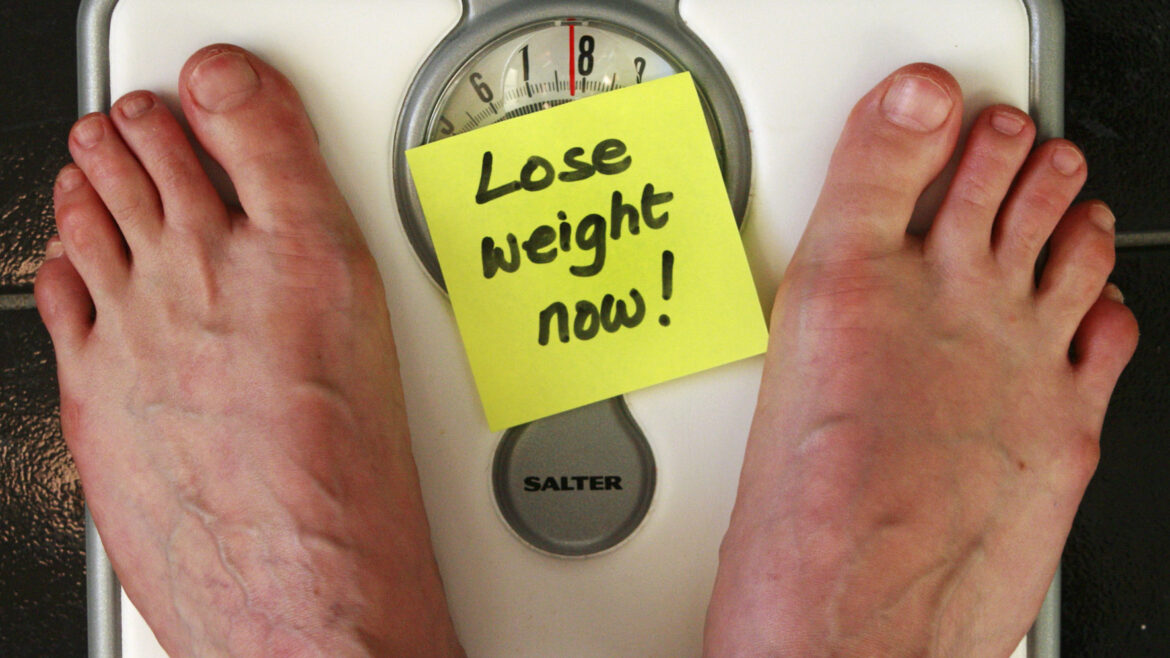Discovering Healthy Eateries in Maryville: A Guide for Weight Loss Success
https://icdrc.org/wp-content/uploads/2024/02/Lose_weight_now-1024x685.jpg 1024 685 admin admin https://secure.gravatar.com/avatar/693ccb227eb6527287caaa4e9eb13c6e?s=96&d=mm&r=gI. Introduction
In recent years, the emphasis on health and well-being has spurred a growing interest in weight loss clinic maryville tn as essential hubs for individuals seeking effective and personalized solutions to their weight management challenges. Weight loss clinics play a pivotal role in guiding individuals towards healthier lifestyles. Combining professional expertise with tailored programs designed to address the unique needs of each client. These clinics go beyond conventional approaches to weight loss by integrating medical, nutritional, and behavioral strategies to foster sustainable results.
The significance of weight loss clinics in Maryville, TN, cannot be overstated. As a vibrant community nestled in the picturesque foothills of the Great Smoky Mountains, Maryville residents are increasingly recognizing the importance of maintaining a healthy weight for overall well-being. The prevalence of weight-related health issues, such as obesity and associated conditions. Underscores the critical need for accessible and specialized weight loss services in the Maryville area. This has led to a surge in demand for reliable and effective weight loss clinics that can provide comprehensive support to individuals on their wellness journeys.
II. About IT Weight Loss Clinic
A. Background and History
IT Weight Loss Clinic stands at the forefront of the Maryville, TN, healthcare landscape. Bringing a rich background and history of commitment to the well-being of its clients. Established with a vision to redefine the approach to weight management. The clinic has evolved over the years, integrating cutting-edge research, medical advancements, and a deep understanding of individual needs. The clinic’s roots in the community and its dedication to continuous improvement make it a trusted destination for those seeking personalized and evidence-based weight loss solutions.
B. Mission and Vision
At the heart of IT Weight Loss Clinic’s mission is a commitment to empowering individuals with the tools and support needed to achieve their weight loss goals. The clinic envisions a healthier Maryville community by providing not only weight management solutions but also fostering a holistic approach to wellness. By addressing the physical, nutritional, and psychological aspects of weight loss. IT Weight Loss Clinic aims to inspire lasting lifestyle changes and promote long-term health outcomes for its clients.
C. Unique Features and Services
What sets IT Weight Loss Clinic apart are its unique features and services that cater to the diverse needs of its clientele. From personalized weight loss programs tailored to individual body types and health conditions to comprehensive health assessments that serve as the foundation for informed decision-making. The clinic ensures a customized approach to every client’s weight loss journey. Moreover, its commitment to incorporating the latest advancements in medical science, coupled with nutritional counseling, exercise plans, and unwavering medical supervision, distinguishes IT Weight Loss Clinic as a leader in the field. The clinic’s holistic approach encompasses behavioral and lifestyle modifications. Creating a supportive environment that fosters sustainable results and long-term well-being for its clients.
III. Key Services Offered
A. Personalized Weight Loss Programs
IT Weight Loss Clinic distinguishes itself by offering meticulously crafted. Personalized weight loss programs that cater to the unique needs of each individual. The clinic understands that a one-size-fits-all approach does not yield sustainable results, and thus. It employs a comprehensive assessment process to design programs tailored to factors such as body type, metabolism, medical history, and personal goals. By combining scientific precision with a client-centered approach. These personalized programs ensure that clients embark on a journey that is both effective and sustainable.
B. Comprehensive Health Assessments
At the core of IT Weight Loss Clinic’s services are comprehensive health assessments. Providing a thorough understanding of each client’s current health status. These assessments encompass a range of medical, nutritional, and lifestyle factors. Enabling the clinic’s professionals to create a holistic profile for informed decision-making. By delving into the root causes of weight-related challenges. The clinic ensures that its interventions are not merely focused on symptomatic relief but address the underlying factors contributing to weight issues.
C. Nutritional Counseling
Recognizing the pivotal role of nutrition in achieving and maintaining a healthy weight. IT Weight Loss Clinic offers expert nutritional counseling services. Clients benefit from one-on-one sessions with qualified nutritionists who guide them through personalized dietary plans. These plans are designed to align with individual health needs, preferences, and lifestyle, fostering a sustainable and enjoyable approach to eating that complements their weight loss journey.
D. Exercise and Fitness Plans
A well-rounded weight loss strategy is incomplete without a targeted exercise and fitness plan. IT Weight Loss Clinic collaborates with experienced fitness professionals to create customized workout regimens tailored to individual fitness levels, preferences, and health conditions. By incorporating exercise into the weight loss journey, clients not only burn calories but also enhance overall well-being, strength, and endurance.
E. Medical Supervision and Support
IT Weight Loss Clinic places a premium on the safety and well-being of its clients by providing dedicated medical supervision throughout their weight loss journey. Experienced healthcare professionals closely monitor clients, ensuring that their progress aligns with established health standards. This commitment to medical supervision instills confidence in clients and reinforces the clinic’s dedication to delivering effective, evidence-based weight loss solutions.
IV. Why Choose IT Weight Loss Clinic in Maryville, TN
A. Expertise and Experience
Choosing IT Weight Loss Clinic means opting for a wealth of expertise and experience in the field of weight management. The clinic boasts a team of highly qualified healthcare professionals, including physicians, nutritionists, and fitness experts. Who collectively bring years of experience and a deep understanding of the complexities surrounding weight loss.
B. Client Success Stories
The success stories of IT Weight Loss Clinic’s clients stand as testament to the clinic’s efficacy in achieving meaningful and sustainable results. Real-life examples showcase the diverse backgrounds and weight loss goals of individuals who have successfully transformed their lives with the support of the clinic’s tailored programs and expert guidance.
C. Cutting-edge Technology and Treatments
Staying at the forefront of advancements in medical science, IT Weight Loss Clinic incorporates cutting-edge technology and treatments into its services. By leveraging the latest innovations, the clinic ensures that clients have access to state-of-the-art solutions that enhance the effectiveness and efficiency of their weight loss journey.
D. Client-Centered Approach
A client-centered approach is the cornerstone of IT Weight Loss Clinic’s philosophy. The clinic recognizes that each individual is unique, and as such, it prioritizes personalized care and attention. By fostering a supportive and collaborative environment, the clinic empowers clients to actively participate in their weight loss journey, promoting a sense of ownership and motivation for sustained success.
V. Specialized Programs
A. Targeted Weight Loss Plans
IT Weight Loss Clinic prides itself on offering targeted weight loss plans that recognize the diverse needs and goals of its clients. These plans go beyond generic solutions, taking into account individual factors such as metabolism, body composition, and lifestyle. By tailoring weight loss strategies to specific client profiles, the clinic ensures that the journey is not only effective but also aligned with each individual’s unique circumstances and aspirations.
B. Medical Weight Loss Options
For clients requiring a more intensive and medically supervised approach, IT Weight Loss Clinic provides specialized medical weight loss options. These interventions may include prescription medications, hormone therapy, or other medical treatments that are closely monitored by healthcare professionals. This comprehensive approach, under medical supervision, ensures that clients with specific health considerations receive the specialized care needed to achieve their weight loss goals safely and effectively.
C. Behavioral and Lifestyle Modification
Recognizing the intricate connection between behavior, lifestyle, and weight management, IT Weight Loss Clinic places a strong emphasis on behavioral and lifestyle modification programs. These specialized interventions address the psychological aspects of weight loss, helping clients identify and overcome obstacles, establish healthier habits, and foster a positive mindset towards sustained lifestyle changes. By integrating behavioral strategies, the clinic ensures that clients are equipped with the tools needed to navigate the challenges associated with long-term weight maintenance.
D. Holistic Wellness Approach
IT Weight Loss Clinic adopts a holistic wellness approach that extends beyond conventional weight loss methods. This comprehensive strategy considers the interplay between physical, emotional, and mental well-being. By incorporating elements such as stress management, sleep optimization, and mindfulness practices. The clinic aims to enhance overall quality of life and promote a holistic sense of wellness throughout the weight loss journey.
VI. Benefits of Choosing the Best Weight Loss Clinic in Maryville, TN
A. Achieving Sustainable Results
Choosing IT Weight Loss Clinic in Maryville, TN, translates to a commitment to achieving sustainable results. The clinic’s personalized programs, medical supervision, and holistic approach collectively contribute to fostering changes that extend beyond short-term weight loss. Clients can expect to see lasting results and are equipped with the knowledge and tools to maintain their achievements over the long term.
B. Improving Overall Health and Well-being
Beyond weight management, the benefits of selecting the best weight loss clinic extend to overall health and well-being. IT Weight Loss Clinic’s multifaceted approach addresses various facets of health, leading to improvements in cardiovascular health, metabolic function, energy levels, and more.
C. Access to Professional Guidance and Support
IT Weight Loss Clinic provides clients with access to a team of dedicated professionals who offer expert guidance and unwavering support throughout their weight loss journey. This access to professional support ensures that clients receive personalized advice, motivation, and the necessary adjustments to their programs as needed, fostering a sense of accountability and empowerment.
D. Positive Impact on Long-term Lifestyle
Choosing IT Weight Loss Clinic signifies a commitment to positive, long-term lifestyle changes. The clinic’s client-centered approach and behavioral modification programs empower individuals to make informed choices, establish healthier habits, and develop a sustainable relationship with food and exercise. This positive impact extends beyond the duration of the weight loss program. Setting the stage for a lifelong commitment to a healthier lifestyle.
VII. Client Testimonials
A. Real-life Experiences
IT Weight Loss Clinic has left an indelible impact on the lives of numerous individuals, each with a unique weight loss journey and set of challenges. Real-life experiences shared by clients underscore the transformative power of the clinic’s programs. Clients express gratitude for the personalized approach, citing the clinic’s ability to address their specific needs and create sustainable solutions. These testimonials serve as authentic accounts of the positive impact IT Weight Loss Clinic has had on real people, inspiring others in Maryville, TN, to embark on their own transformative journeys.
B. Success Stories
The success stories emerging from IT Weight Loss Clinic paint a vivid picture of achievement and empowerment. Clients who have overcome obstacles and achieved their weight loss goals share their triumphs, not just in terms of shedding pounds but also in reclaiming their health and well-being. These success stories highlight the efficacy of the clinic’s programs, showcasing the diverse range of individuals who have benefited from IT Weight Loss Clinic’s expertise and support.
C. Testimonials Highlighting Clinic’s Effectiveness
Testimonials specifically emphasizing the effectiveness of IT Weight Loss Clinic provide invaluable insights into the measurable outcomes experienced by clients. These testimonials often detail the positive changes in health metrics, such as improved cholesterol levels, enhanced energy levels, and better overall vitality. By highlighting the clinic’s effectiveness, these testimonials contribute to building trust and confidence among prospective clients, affirming the clinic’s reputation for delivering tangible and lasting results.
You can also read kelly odonnell weight loss.
VIII. Conclusion
A. Recap of IT Weight Loss Clinic’s Unique Offerings
In conclusion, IT Weight Loss Clinic stands as a beacon of hope and transformation for the residents of Maryville, TN. Its unique offerings, including personalized programs, comprehensive health assessments, and specialized interventions. Set the clinic apart as a leader in the field of weight management. The client testimonials and success stories underscore the clinic’s commitment to delivering effective and sustainable results.
B. Encouragement to Take the First Step Towards Healthier Living
As individuals contemplate their journey towards healthier living, IT Weight Loss Clinic extends an encouraging invitation to take the first step. The clinic’s team of dedicated professionals is ready to provide the support and guidance needed. To embark on a transformative journey towards improved health and well-being. Choosing IT Weight Loss Clinic is not just a commitment to weight loss; it’s a commitment to a healthier and more fulfilling life. Take that first step today and discover the transformative possibilities that await on the path to better health.
What sets the Weight Loss Clinic in Maryville, TN, apart from others in the area?
Our clinic distinguishes itself through personalized programs, comprehensive health assessments, and a holistic wellness approach, ensuring a tailored and effective weight loss experience.
Are the weight loss programs at the clinic suitable for everyone?
Yes, our programs are designed to accommodate a variety of individual needs and health conditions. Our team of experts ensures each program is personalized for optimal results.
What types of services are offered at the Weight Loss Clinic?
We offer a range of services, including personalized weight loss programs, comprehensive health assessments, nutritional counseling, exercise and fitness plans, and medical supervision to support our clients on their weight loss journey.
How do personalized weight loss programs work?
Our personalized programs take into account individual factors such as body type, metabolism, and health conditions. They are crafted to address the unique needs and goals of each client, ensuring a customized and effective approach.
Is medical supervision provided during the weight loss programs?
Yes, medical supervision is a key aspect of our services. Our experienced healthcare professionals closely monitor clients throughout their weight loss journey to ensure safety and effective results.
What specialized programs does the clinic offer for more targeted results?
Our specialized programs include targeted weight loss plans, medical weight loss options, behavioral and lifestyle modification, and a holistic wellness approach, catering to diverse needs and preferences.








